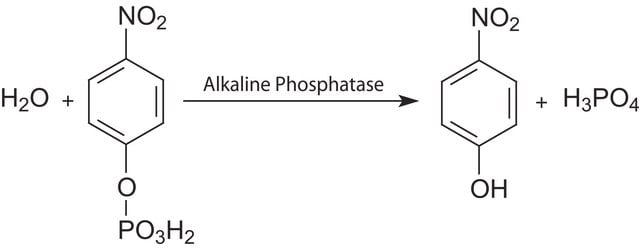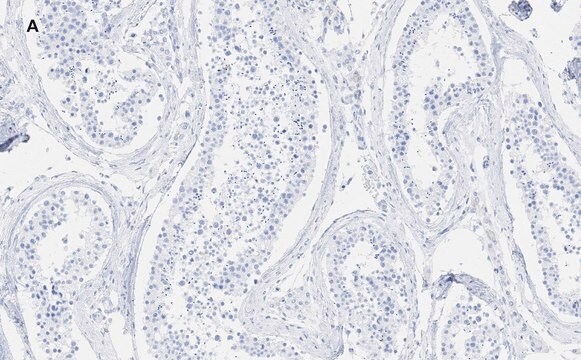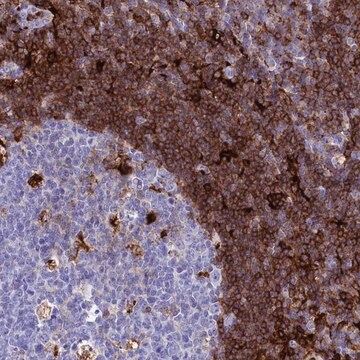SAB4200115
Anti-Reptin antibody, Mouse monoclonal
clone 2E9-5, purified from hybridoma cell culture
Sinónimos:
Anti-CGI-46, Anti-ECP51 (Erythrocyte cytosolic protein, 51-KD), Anti-INO80J, Anti-RUVBL2 (RuvB-like 2), Anti-RVB2, Anti-TIH2, Anti-TIP48 (TATA box-binding protein-interacting protein, 48-KD), Anti-TIP49B
About This Item
Productos recomendados
biological source
mouse
conjugate
unconjugated
antibody form
purified from hybridoma cell culture
antibody product type
primary antibodies
clone
2E9-5, monoclonal
form
buffered aqueous solution
mol wt
antigen ~51 kDa
species reactivity
human, rat, mouse
packaging
antibody small pack of 25 μL
concentration
~1.0 mg/mL
technique(s)
western blot: 0.5-1.0 μg/mL using whole extract of human MCF-7 cells
UniProt accession no.
shipped in
dry ice
storage temp.
−20°C
target post-translational modification
unmodified
Gene Information
human ... RUVBL2(10856)
General description
Immunogen
Application
- immunoblotting
- immunoprecipitation
- immunofluorescence
- confocal microscopy
Biochem/physiol Actions
Physical form
Disclaimer
¿No encuentra el producto adecuado?
Pruebe nuestro Herramienta de selección de productos.
Storage Class
10 - Combustible liquids
flash_point_f
Not applicable
flash_point_c
Not applicable
Elija entre una de las versiones más recientes:
Certificados de análisis (COA)
¿No ve la versión correcta?
Si necesita una versión concreta, puede buscar un certificado específico por el número de lote.
¿Ya tiene este producto?
Encuentre la documentación para los productos que ha comprado recientemente en la Biblioteca de documentos.
Global Trade Item Number
| Número de referencia del producto (SKU) | GTIN |
|---|---|
| SAB4200115-200UL | 4061838034724 |
| SAB4200115-25UL | 4061838034731 |
Nuestro equipo de científicos tiene experiencia en todas las áreas de investigación: Ciencias de la vida, Ciencia de los materiales, Síntesis química, Cromatografía, Analítica y muchas otras.
Póngase en contacto con el Servicio técnico





